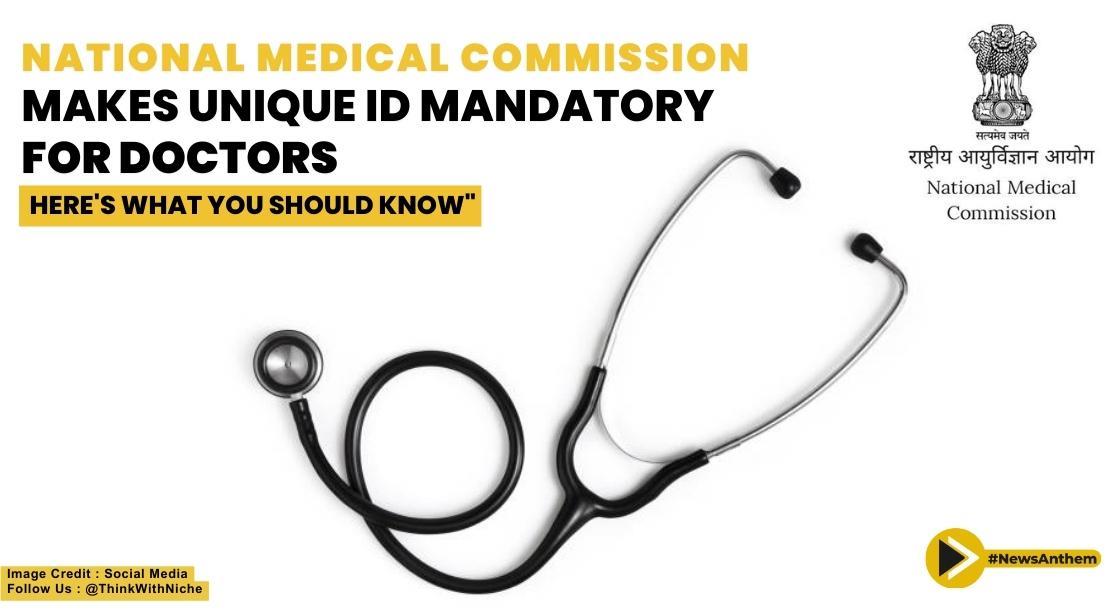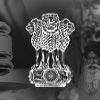National Medical Commission Makes Unique ID Mandatory for Doctors: Here's What You Should Know

News Synopsis
National Medical Register and Unique Identification Number for Doctors
The National Medical Commission (NMC) has recently issued a notification stating that all doctors in India must obtain a unique identification number (UID) in order to practice medicine in the country. The UID will be generated by the Ethics Board of the NMC and will serve as a registration number for the practitioner.
The NMC has also announced that a common national medical register (NMR) will be maintained by the Ethics and Medical Registration Board of the NMC for all the registered medical practitioners in the country. The NMR will include entries of registered medical practitioners from all State registers maintained by the State Medical Councils.
The NMR will contain important information about the medical practitioner such as medical qualification, specialty, year of passing, university, name of the institute(s) from where the qualification(s) was obtained, and the place of work (name of hospital/institute). Anyone can access the NMR on the NMC’s official website.
The license to practice medicine must be renewed every five years, according to the NMC notification. Practitioners will need to submit an application to the State Medical Council for license renewal three months before the expiration of the validity of the license. No fee will be charged by EMRB, NMC for the purpose of updating the license.
In case the State Medical Council rejects the application for license renewal, practitioners can file an appeal with the Ethics and Medical Regulation Board. The appeal must be submitted to the NMC Secretary with the original application, copy of communication received from the State Medical Council, written application arguing the grounds of rejection, and a processing fee in favor of the Secretary, NMC.
The EMRB will examine the appeal and decide within 30 days. If the appeal is allowed, the EMRB may pass an order for the State Medical Council to grant the license to practice to the applicant. The State Medical Council will then have 15 days to grant the license. If the appeal is rejected, practitioners can file a second appeal with the NMC within 60 days of communication from the EMRB.
What is National Medical Commission (NMC)?
The National Medical Commission (NMC) is a statutory body responsible for the regulation of medical education, training, and practice in India. It was established in 2019 and replaced the Medical Council of India (MCI). The NMC is responsible for maintaining a national medical register (NMR) of all registered medical practitioners in the country.
The main objective of the NMC is to improve the quality of medical education, training, and practice in India. It aims to achieve this by developing and enforcing policies and standards for medical education and practice. The NMC is also responsible for ensuring the availability of qualified and competent medical professionals in the country.
The NMC is governed by a board of directors, which includes medical professionals, government representatives, and other experts. The board is responsible for formulating policies and making decisions regarding medical education and practice in India.
One of the recent initiatives taken by the NMC is the introduction of a unique identification number (UID) for all doctors practicing in the country. This UID is a mandatory requirement for all doctors who wish to practice medicine in India. The ethics board of the NMC will generate the unique ID and grant the practitioner registration and the eligibility to practice medicine in India. The national medical register (NMR) maintained by the Ethics and Medical Registration Board of the NMC will have entries of the registered medical practitioners of all State registers maintained by the State Medical Councils.
The NMC is also responsible for the renewal of licenses for medical practitioners. The license to practice medicine has to be renewed every 5 years. For this, the practitioner has to submit an application to the State Medical Council. The application seeking renewal of the license has to be made three months prior to the expiration of the validity of the license. No fee shall be charged by EMRB, NMC for the purpose of updating the license of such a medical practitioner.
In addition to regulating medical education and practice, the NMC is also responsible for setting up medical colleges and institutions in the country. It is also responsible for conducting national level entrance examinations for admission to undergraduate and postgraduate medical courses.
What is Unique Identification Number (UID)?
The UID is a 12-digit number that will be generated by the NMC's ethics board. The UID will be linked to the NMR and will be used to identify and track doctors in India. The UID will be mandatory for all doctors who want to practice medicine in India.
What is National Medical Register (NMR)?
The NMR is a common database of all registered medical practitioners in India. The NMR will be maintained by the NMC and will contain information such as the practitioner's name, qualification, specialty, year of passing, and place of work. The NMR will be used to track and monitor doctors, and to ensure that patients are treated by qualified and experienced practitioners.
Facts:
-
The UID and NMR were announced by the NMC in a notification on May 12, 2023.
-
The UID and NMR are expected to be implemented by the end of 2023.
-
The UID and NMR are expected to improve the quality of healthcare in India by making it easier to track and monitor doctors, and by ensuring that patients are treated by qualified and experienced practitioners.
Here are some additional details about the UID and NMR:
-
The UID will be generated by the NMC's ethics board using a secure and confidential process.
-
The UID will be linked to the NMR using a secure and encrypted database.
-
The NMR will be accessible to the public, but only to authorized users.
-
The UID and NMR will be used to track and monitor doctors for a variety of purposes, including:
-
Ensuring that doctors are qualified to practice medicine
-
Monitoring doctors for disciplinary action
-
Tracking doctors' prescribing habits
-
Tracking doctors' patient outcomes
-
ThinkWithNiche News' conclusion
The National Medical Commission (NMC) is a regulatory body responsible for maintaining and improving the quality of medical education and practice in India. It aims to ensure the availability of qualified and competent medical professionals in the country and to provide a safe and effective healthcare system for all. The introduction of a unique identification number (UID) and a national medical register (NMR) for all registered medical practitioners is a significant step towards achieving these objectives.
Important News Tags and Headlines for Readers
National Medical Commission makes Unique ID mandatory for doctors: Here's what you should know
National Medical Register to maintain unique identification numbers for doctors
New regulation by National Medical Commission requires doctors to obtain unique identification number
You May Like









